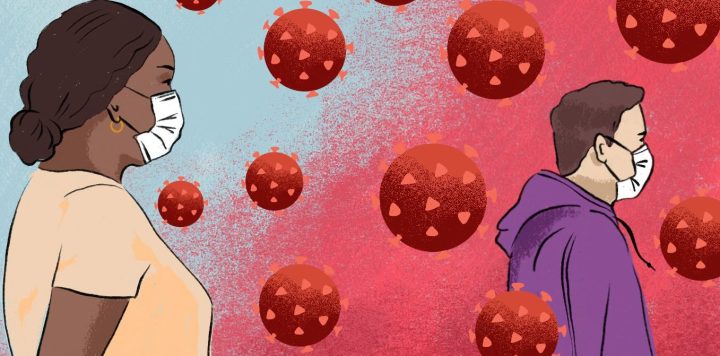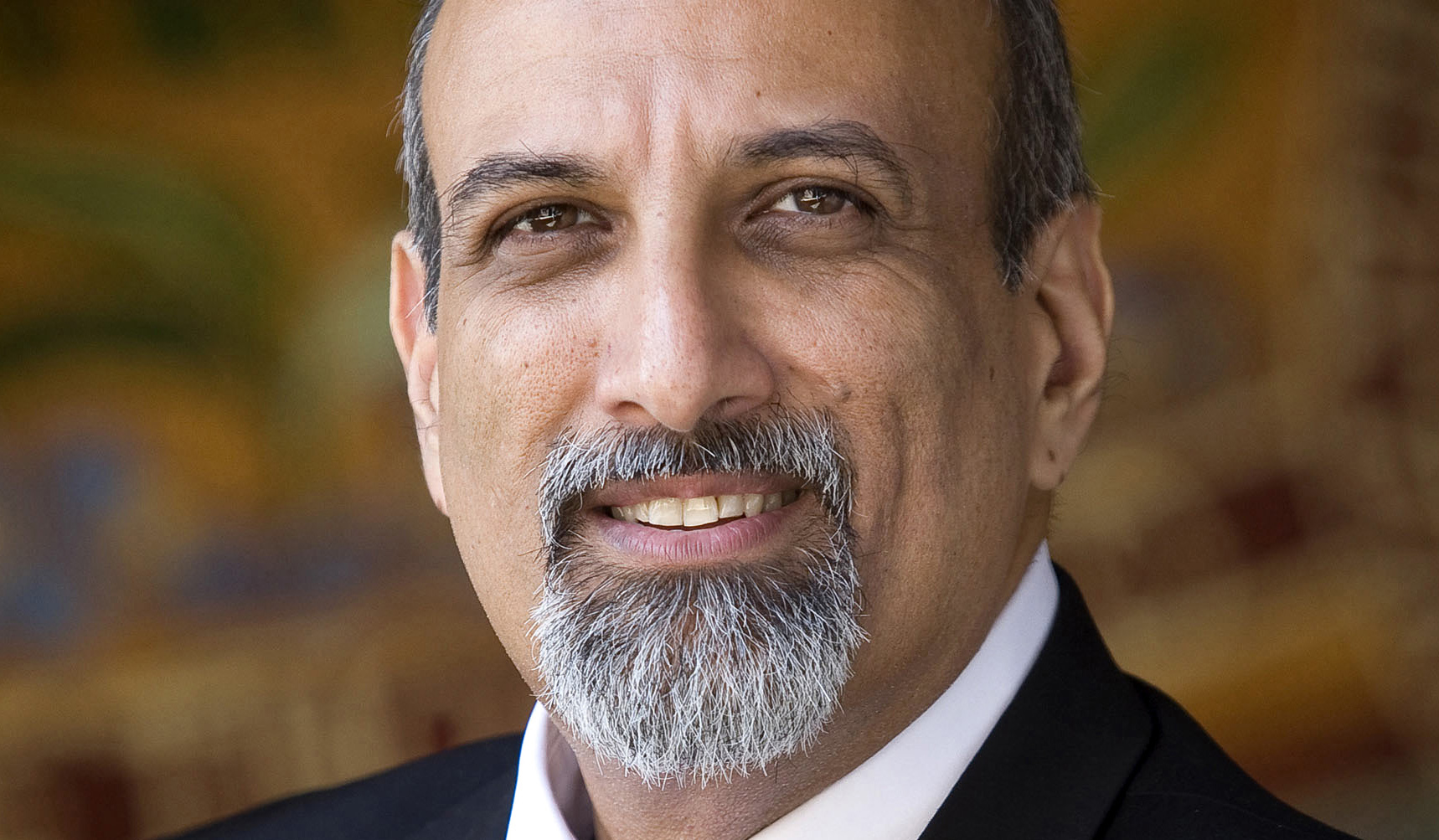CORONAVIRUS
Covid infections causing ‘tsunami’ of health risks such as heart disease

Scientists say the world is facing a ‘tsunami’ of health risks caused by Covid infections, as increased knowledge of the virus shows that it is not just a respiratory disease.
New data from patients who contracted Covid shows that an infection, even if asymptomatic, increases their risk for heart disease (with one study indicating a 50% increase) within a year.
Another large study involving 181,000 patients also showed an increased risk for diabetes.
“We must think long term and prevent every single infection,” said Prof Salim Abdool Karim. The former co-chairperson of the Ministerial Advisory Committee on Covid-19 said it was essential that people understand how new medical knowledge of Covid is changing the way we think about the virus.
“We cannot go into the future of this pandemic and just say ‘let the virus spread’. We need public health awareness. Vaccines must become an essential requirement,” he said.
While it is estimated, based on seroprevalence surveys, that about 80 to 85% of South Africans have been infected at some time since the start of the pandemic, Abdool Karim said the new data on the after effects of Covid makes it essential that those who have not been infected are protected.
He added that reinfection with the virus, for those who had contracted it before, was possible due mostly to the “wily” BA.5 subvariant of Omicron, but new studies show that this too increased health risks dramatically.
Abdool Karim explained that reinfection increases the risks of other diseases like diabetes and heart disease every time it happens, as well as increases the risk for fatigue, gastrointestinal disease, kidney problems, mental health, muscle and skeletal diseases and pulmonary disease.
“This increased risk of heart disease occurs regardless of the severity of Covid symptoms,” Abdool Karim explained.
“This is going to change the practice of medicine,” he said. “Before, we had not thought of Covid as a chronic illness… Initially we thought of it as an acute infection. That is how we understood it in 2021 and 2022. That is no more.”
He explained that new data about infections caused by the SARS-CoV-2 virus shows that it is not a respiratory disease.
“It causes disease from head to toe,” he said. “It primarily enters through the respiratory tract,” he added, “but Covid-19 is more than just the acute symptoms.”
He said the phrase was not his own, but that his colleagues are referring to the “tsunami of long Covid” that will hit the health system.
Other long-term effects of Covid infections include a severe impact on the brain. The results of a large study in the United Kingdom, where patients are doing follow-up brain scans to measure the effect of ageing on the brain, showed that people who were infected with SARS-CoV-2 – even if they didn’t know it – lost some of their gray matter.
“Infected people’s brains are smaller. They lose 1% to 2% of their grey matter,” Abdool Karim said. “This makes them less able to do complex tasks.”
He said similar findings were made by American scientists studying elite football players. The data produced by their study showed that these athletes’ performance were significantly impacted by Covid infections when compared to those who did not have the disease.
He said South Africa should have introduced a vaccine mandate a long time ago because, apart from offering personal protection, the latest research shows that vaccinated people are less likely to transmit the virus to others if they are infected.
Abdool Karim said it also appears that getting vaccinated can lessen the symptoms of long Covid. “But it is still early days. We need more evidence,” he added.
Abdool Karim has filed an affidavit in the upcoming court case between several civil rights organisations and the Health Minister Joe Phaahla on the legality of the public health restrictions, including mask mandates, that were promulgated in May but then withdrawn in June.
Describing the nature of the disease, he says in his affidavit: “It is a disease that can affect almost every part of the body. It can be a silent asymptomatic infection or it can cause clinical illness.
“While older individuals and those with comorbid conditions are at higher risk of severe acute disease, hospitalisation and death, anyone who has been infected, especially those who are unvaccinated, are at high risk of several medical conditions impacting the entire body, from head to toe.
“The risk of acute illness combined with the long-term risks of long Covid – and the increased risk of heart disease, stroke, diabetes and neurological illness – provides a compelling reason why preventing infection is essential. Even if only a fraction of infections is prevented, this could prevent debilitating long-term illnesses and premature death.
“The pandemic is not over. It is important to note that, globally, there has been an average of over 274,000 SARS-CoV-2 cases and about 1,000 Covid deaths each day in June 2022.
“The world is still in the midst of the Covid-19 pandemic, with the virus continuing to mutate, creating new variants as it spreads across the world,” Karim said.
He outlined five reasons why the virus should not be allowed to spread unimpeded:
- It could cause more new infections and reinfections;
- It will see an increased risk of acute illness and death, especially when the virus spreads to a person at risk, such as someone above 60 years of age;
- More people will develop long Covid;
- More people will be at risk of developing cardiovascular disease, stroke, diabetes and neurological conditions in the long term;
- It will provide increased chances of new variants emerging, as the virus can only mutate when replicating.
“Early in 2020, before vaccines became available, a group of scientists proposed the Great Barrington Declaration, which recommended that the virus simply be allowed to spread within the community, with steps to protect the elderly.
“This approach has been completely discredited and countries that tried versions of it, like Sweden, suffered substantial numbers of deaths,” he continued.
While vaccination remains the most effective way to prevent Covid, Abdool Karim said the wearing of masks, avoiding large gatherings and poorly ventilated indoor environments also remain ways to avoid getting infected or reinfected with the virus.
He added that a study published in June 2022 in the scientific journal, Proceedings of the National Academy of Science, provided compelling evidence that masks do work – and work in many different settings across all six continents.
“While not as good as vaccines in preventing the spread of SARS-CoV-2, masks have the protective benefits of slowing viral transmission and reducing the number of people getting infected,” he added.
“There is also evidence that masks work in South Africa.
“The use of masks in 2020 and 2021 contributed to the lack of influenza transmission in the country’s usual winter ‘flu’ season in both years.
“Masks also reduced the spread of other respiratory pathogens in South Africa, such as respiratory syncytial virus.” DM/MC
"Information pertaining to Covid-19, vaccines, how to control the spread of the virus and potential treatments is ever-changing. Under the South African Disaster Management Act Regulation 11(5)(c) it is prohibited to publish information through any medium with the intention to deceive people on government measures to address COVID-19. We are therefore disabling the comment section on this article in order to protect both the commenting member and ourselves from potential liability. Should you have additional information that you think we should know, please email [email protected]"




 Become an Insider
Become an Insider